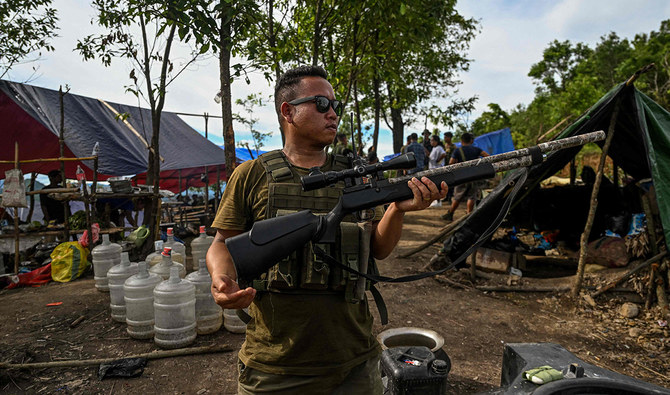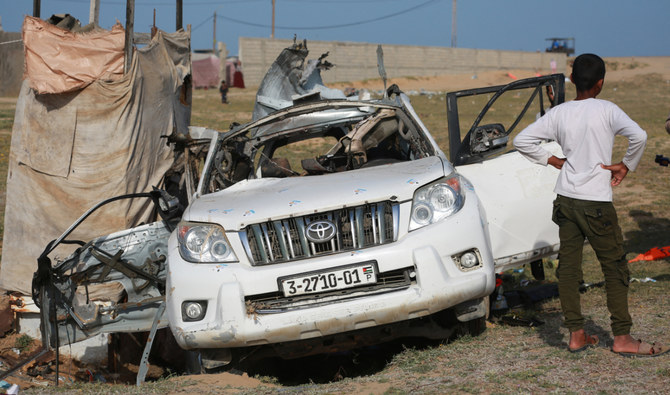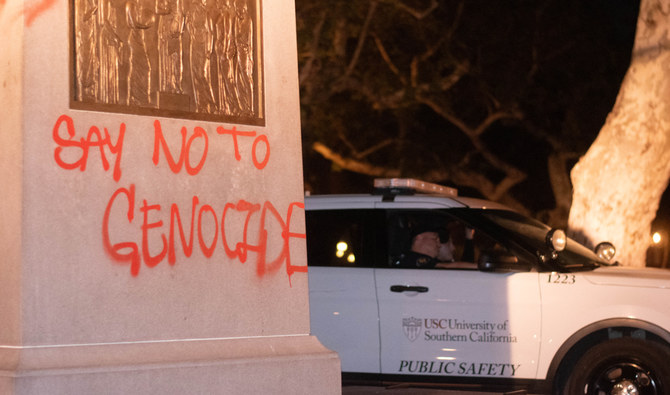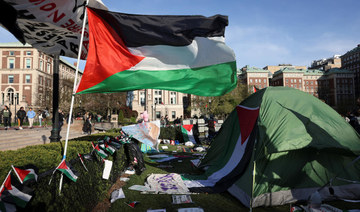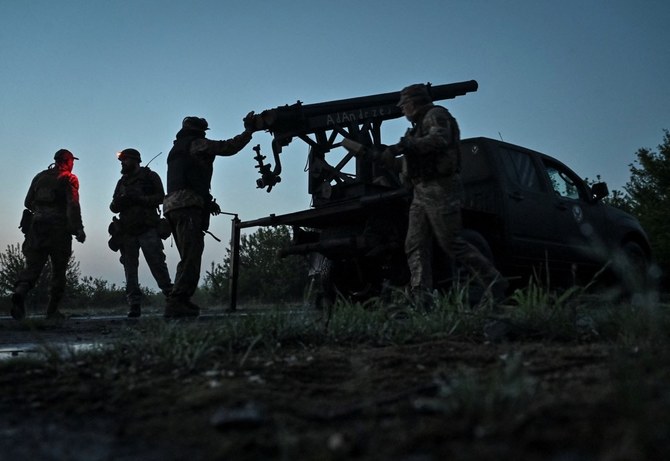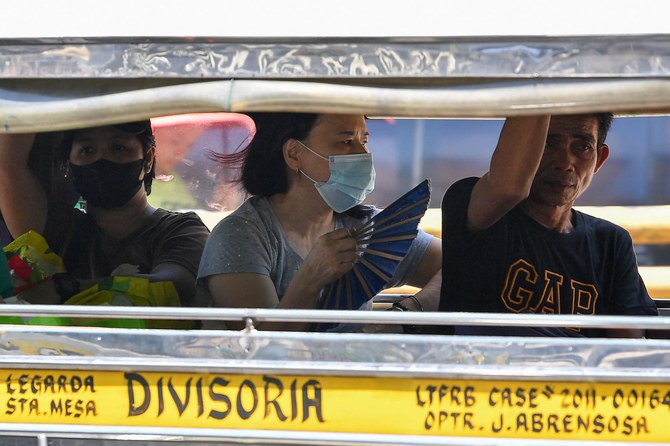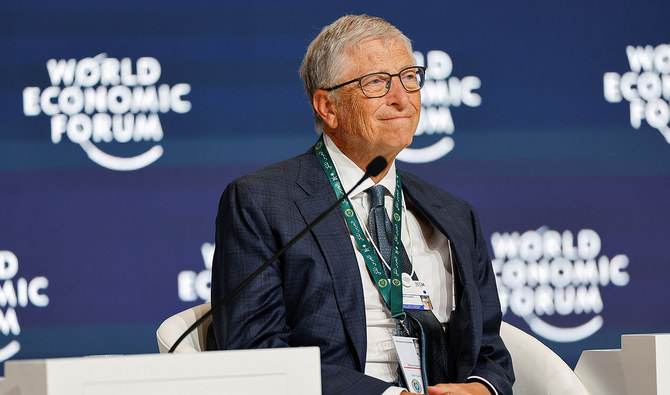KANGVAI: A one-mile stretch of a highway in the lush green foothills of India’s Manipur state has become the symbol of a vicious sectarian conflict that has killed over 180 people since May and severely dented the strongman image of Prime Minister Narendra Modi.
The bitter fighting between the Meitei community and the Kuki tribals is in the remote northeast of the country but it has lasted for almost three months, a deep embarrassment for Modi as he prepares to host a summit of G20 leaders in September and contest a general election next year.
There have been past tensions between the two groups, but violence erupted in early May after the state high court ordered the government to consider extending economic benefits reserved for the Kuki tribals to the Meiteis.
Street protests spiralled into armed conflict and now, rival gunmen have dug into bunkers and outposts along the highway and in other places in Manipur, and regularly fire at each other with assault weapons, sniper rifles and pistols.
Tens of thousands of people have fled their homes because of the fighting, villages have been set on fire and many women sexually assaulted, residents and media reports say. The Meitei-dominated state police are seen as partisan while army troops have been ordered to keep the peace but not to disarm fighters.
There is no sign of any early resolution.
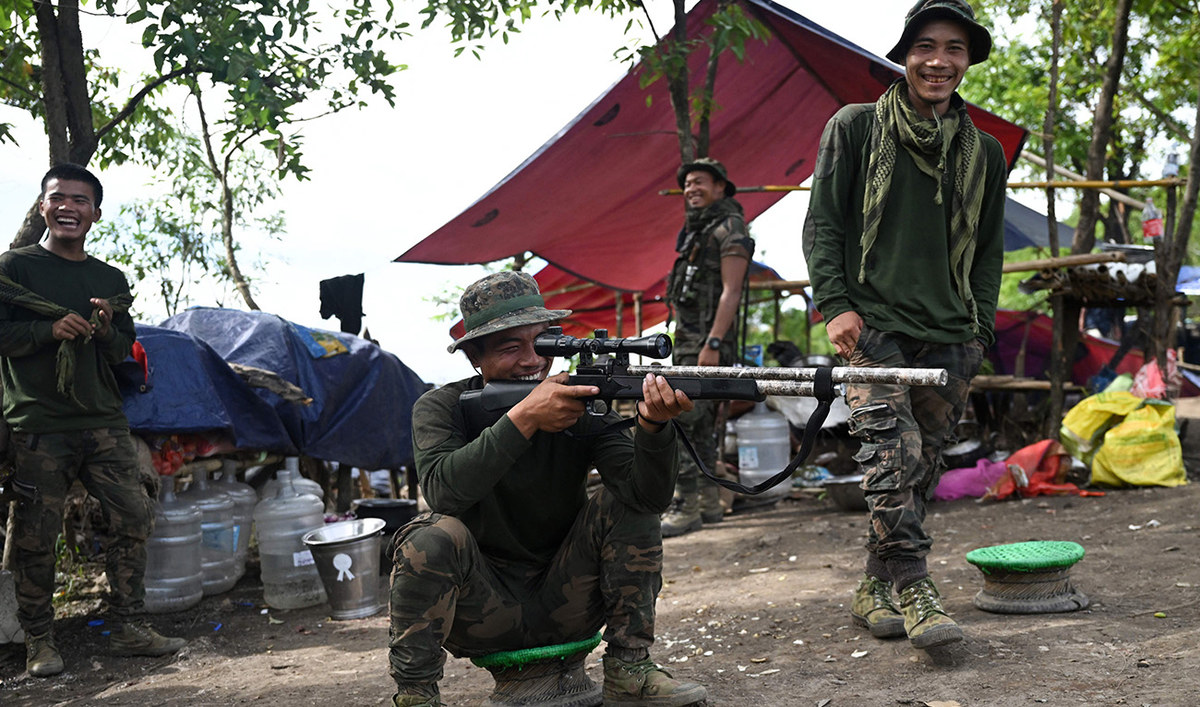
In this picture taken on July 24, 2023, armed men claiming to be volunteers aims a rifle at a makeshift camp on a hilltop at Churachandpur district, stronghold of the Kuki tribe, in the northeastern state of Manipur, India. (Reuters)
Historian and author Ramachandra Guha described the situation as “a mixture of anarchy and civil war and a complete breakdown of the state administration.”
“It is a failure of the prime minister at a time of grave national crisis,” Guha added, speaking in a television interview. “Narendra Modi lives in a bubble of his own, he doesn’t like to be associated with bad news and somehow hopes he will ride it out.”
The prime minister’s office and a state government spokesman did not respond to requests for comment.
The Kukis, who are a third of the Meitei population, have borne a disproportionate brunt of the violence and make up two-thirds of the victims, according to new government data reviewed by Reuters this week. They have mostly fled to the hills, leaving the capital Imphal and the surrounding valley, areas dominated by the majority Meiteis.
Much of the violence and killings have taken place in buffer zones near Manipur’s foothills where intense gunbattles erupt regularly, security officials said.
The stretch of the national highway where the Meitei-dominated Bishnupur district meets Kuki-controlled Churachandpur is one of the buffer zones that has seen some of the worst fighting.
Modi’s comments
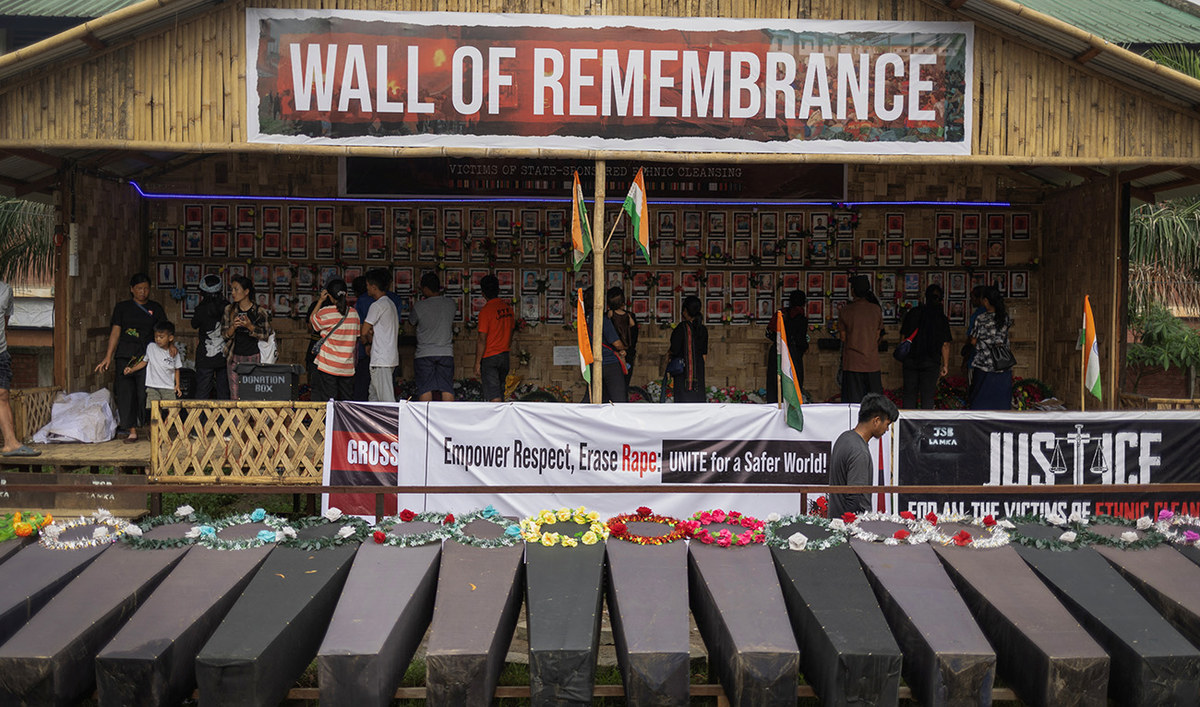
Kuki people look at the pictures of those they claim have died in ethnic violence, at a protest site in Churachandpur district in the northeastern state of Manipur, India, July 22, 2023. (Reuters)
This week, when a Reuters team visited the Kuki village of Kangvai, just off the highway, volleys of gunshots could be heard from both sides.
Jangminlun Touthang, 32, a Kuki fighter carrying a hunting rifle, was manning a post directly opposite the Meitei lines.
He said he was there to protect his village from the Meiteis “who are going to attack us, who are going to burn our houses.”
“When they attack, we fire,” he said.
Modi’s first comments on the violence in Manipur came last week, over two months after the trouble started in early May. He promised tough action a day after videos that purported to show two Kuki women being paraded naked and assaulted by a crowd went viral and drew international condemnation.
“The law will take its strongest steps, with all its might. What happened to the daughters of Manipur can never be forgiven,” he said.
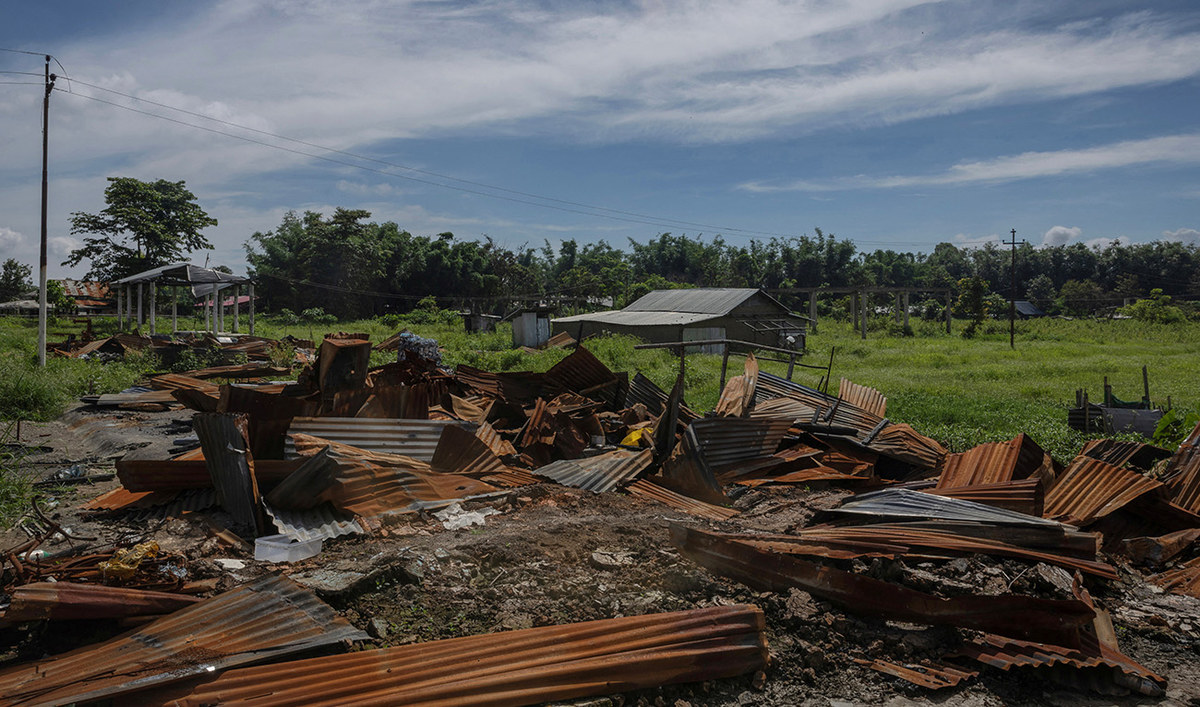
A burnt structure is pictured at Torbung village in Churachandpur district, in the northeastern state of Manipur, India, July 23, 2023. (REUTERS)
Modi’s Bharatiya Janata Party (BJP) also heads the state government in Manipur. In the federal parliament, Modi faces a no-confidence motion over the violence, the second time in over nine years in power that he has been put to the test.
Although there is no threat to his government, Modi is likely to have to address the issue in detail.
The opposition is likely to ask why he is persisting with support to Manipur Chief Minister Biren Singh, a Meitei who heads the BJP state government.
Manipur, which borders Myanmar, is one of India’s smallest states with a population of 3.2 million. While Kukis are just 16 percent of the state’s population, Meiteis make up 53 percent of the people.
The death toll of 181 killed includes 113 Kukis and 62 Meiteis, according to the data reviewed by Reuters that have not been reported earlier.
The data show that in the first week of the violence in early May, 77 Kukis were killed compared to 10 Meiteis.
“Resources available to both sides are not the same. It is not a fight among equals,” a federal security official based in Manipur told Reuters.
According to government estimates, 2,780 weapons stolen from the state armory, including assault rifles, sniper guns and pistols, remain with the Meiteis, while the Kukis have 156.
Kae Haopu Gangte, general secretary of Kuki Inpi Manipur, an umbrella Kuki civil society group, blamed the conflict on what he said was the desire of the Meiteis to dominate Kuki land.
The Kukis now want a separate state within India, he said.
“Until and unless we achieve statehood we will not stop,” Gangte said. “We are fighting not only Meiteis, we are fighting the government.”
Pramot Singh, founder of Meitei Leepun, a prominent Meitei organization that has members on the frontlines, said all Meiteis supported the conflict.
Seated outside his home near Imphal, with a pistol in a holster, he said his group will fight the Kukis until they stop demanding a separate state be carved out of Manipur.
“The war will continue from the Meitei side. This is just the beginning,” he said.



